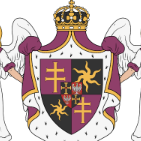-
Popular Topics
-
Topics
-
Recent Status Updates
-
Options
Options
-
USEFUL AND INFORMATIVE FORUM POSTS FOR COMBAT:
I am still a relatively new roleplayer in regards to specifically LOTC's combat,
So, I combed through the forums and found some helpful posts! 😄
IMPORTANT:
Some of these posts may be outdated, so ALWAYS double check the official LOTC combat rules!!
How to be shot:
General RP fighting guide:
Countering & blocking kicks:
OFFICIAL How to respond to Rule Breaking:
Also a General RP fighting guide but it is formatted differently:
Good mindsets to have for Combat RP:
A guide to bows:
Explaining things about crossbows:
How to navigate a LARGE BATTLE:
Big guide to combat RP:
-
i think a lot of people in this damn server are negative nancies and need to start to be more positive. for real.
No Recent Status Updates -
Options

.thumb.gif.04672ac1b382b42e335baf3a5dea5922.gif)








Recommended Posts